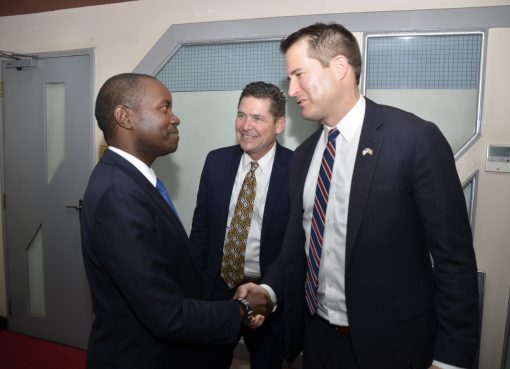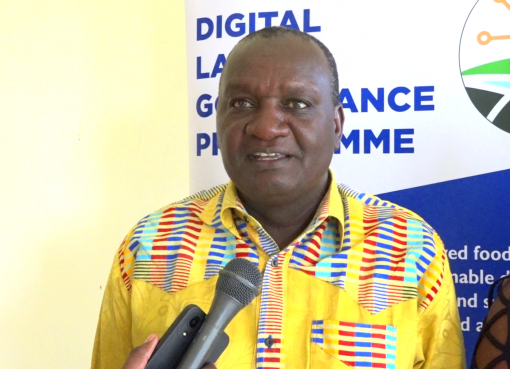The government on Wednesday signed a collaborative framework agreement with universities aimed at setting up mechanisms for the implementation of the Sinema Mashinani project within and around the university communities.
The nine-point agreement will help to identify, nurture and document, promote students’ talents in the creative industry through annual national universities theatre and film festival.
It will also enhance the appreciation and encourage consumption of clean content as well as enhancing compliance with laws governing film regulation in Kenya.
Speaking during the signing Kenya Film Classification Board (KFCB) Chief Executive Officer (CEO), Dr. Ezekiel Mutua said the government will, for a start, allocate Sh.10million for students’ short film competitions beginning next financial year.
Winners will be awarded cash prizes with the overall one taking home up to Sh.2million, Dr. Mutua said at the Kenya School of Government (KSG), Matuga in Kwale County where the board signed the agreement with the Kenya Universities Deans of Students Association (KUDSA).
The association’s chairman, Mohammed Adan signed on behalf of the universities after a three-day forum attended by deans of students. A Memorandum of Understanding will be developed and signed in three months’ time outlining specific joint activities, time frames and budgets.
The agreement will also unearth the untapped opportunities for sustainable job creation and growth of the Kenyan creative economy through the commercialization of stage performances and films.
“The future lies in the creative industry which remains largely untapped,” said Dr. Mutua, noting that the board is collaborating with the universities with support from the KSG to identify and nurture talent among students as well as take art to the communities.
He added that partnership will inspire fresh and creative ideas through stage performances that will inform the formation of strategies for the implementation of the Big 4 Agenda, Vision 2030 and the African Union Agenda 2063.
The Sinema Mashinani is a project of KFCB aimed at creating awareness and advocacy for the consumption of clean content through theatre and film, according to Dr. Mutua.
“The project entails a process of identifying and nurturing talent at the grassroots by supporting creation, distribution and exhibition of films whose themes promote Kenya’s culture, moral values and national aspirations,” he added.
He said everybody, including the government, is hopeful that the initiative will become a game changer since the country can use art, drama and film to contribute to the Big 4 Agenda and to create jobs for the youth.
“The students under you when they leave school can become job creators and job seekers through this initiative,” he told the deans.
“We have seen this happen with Nigeria’s Nollywood which started even in churches with simple tools. People were facilitated by pastors in churches just to act skits,” Dr. Mutua said.
He noted that the move ended up impacting the country’s national economy and branding the culture of Nigeria to the point where today it looks cool and fashionable to look and talk like a Nigerian.
“Some Kenyans like comedian Dr. Ofweneke make money by mimicking Nigerians yet he is from Kakamega,” he said noting that the film industry is today the second contributor to Nigeria’s GDP after oil.
On his part, Adan welcomed the project saying it has the potential in addressing youth unemployment. “University students face various challenges as jobs are hard to come by hence the partnership will help them market their creative products,” he said.
Adan further said that the project has come at the right time when the country is rolling out the Competency Based Curriculum where competencies of individual students are being looked at and nurtured.
“As universities we will do whatever it takes to ensure the project succeeds for the benefit of our students,” he said and lauded Maasai Mara Univesity for setting the pace by partnering with Kenya Television Network (KTN) to air their performing arts programmes.
By James Muchai




